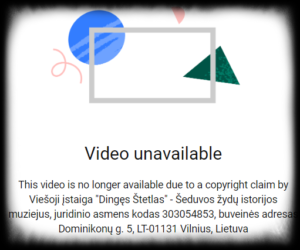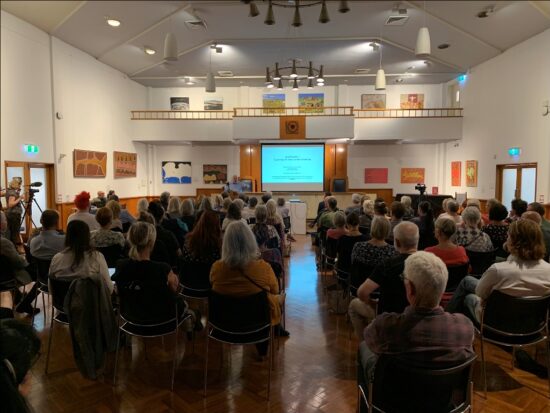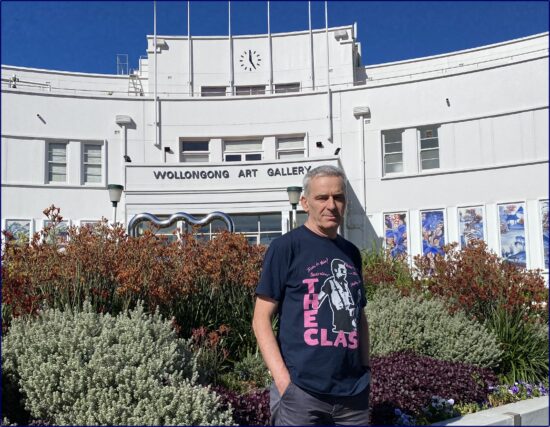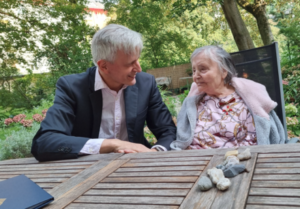OPINION | MUSEUMS | LITHUANIA | LITVAK AFFAIRS | YIDDISH AFFAIRS
◊
by Dalia Epstein (Dalija Epšteinaitė)
◊
When speaking about the Holocaust in Lithuania, it is customary to cite 95%, that is, more than two hundred thousand people. This is not only the lives lost, but also schools, synagogues, kheyders, yeshivas, books, newspapers. This is the white tablecloth and fresh challah of Shabbos, these are the Sabbath conversations in the bes-medresh, which tailors, blacksmiths, carpenters, and tinsmiths in the shtetls wait for all week long, for whom conversations about the Torah are a long-awaited spiritual respite. Today, in such a former synagogue you can see a carpentry workshop, a fire department, a gym, a bathhouse, a funeral services business, and at best a library… After all, there are no more Jews. In the town of Butrimonys (Yiddish: Butrimánts), the name of the former owner, Pertzikovich, has been preserved above the entrance to one house. We stopped to take a photo. A young woman with a little girl came out.
“Yes, Pertzikovich used to live here. And now we live here,” she said calmly and walked on.
We are witnessing the consignment of memory to oblivion. The language spoken, read and written by Jews in the towns and cities of Lithuania has been destroyed. The Nazi occupation exterminated 95% of Yiddish speakers, the bearers of a culture that had suddenly blossomed so brightly in the 1920s and 30s.






